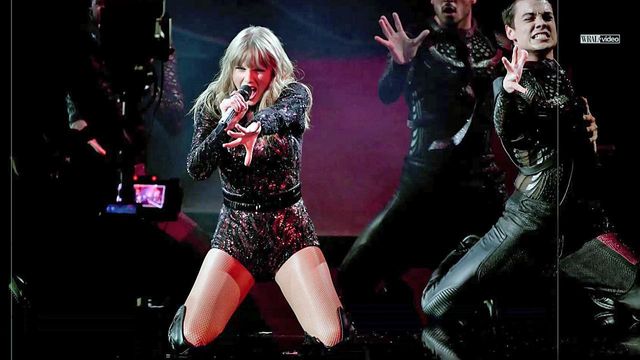Taylor Swift Announces New Record Deal With Universal Music
After more than 12 years, six albums and 10 Grammy Awards as the star of the Nashville-based Big Machine Records, Taylor Swift has a new label.
Posted — UpdatedAfter more than 12 years, six albums and 10 Grammy Awards as the star of the Nashville-based Big Machine Records, Taylor Swift has a new label.
The singer — who became a free agent this month, a year after the release of her latest album, “Reputation” — announced Monday on Instagram that she had signed a multiyear, multialbum agreement with Universal Music Group and its subsidiary, Republic Records. As part of the deal, Swift, 28, will own her master recordings moving forward, she said.
The terms of the deal were not disclosed.
In photos of a typed note posted to her personal account — a rare, public-facing moment of music business messaging from a star of her stature — Swift added that she had negotiated with digital streaming in mind. The singer said she and Universal agreed that if the company sells any of its equity in Spotify, which went public earlier this year, the money would be distributed to artists.
“It’s really important to me to see eye to eye with a label regarding the future of our industry,” Swift said in her statement. “I feel so motivated by new opportunities created by the streaming world and the ever changing landscape of our industry. I also feel strongly that streaming was founded on and continues to thrive based on the magic created by artists, writers and producers.”
With more than 30 million records sold in the United States, Swift is one of the few artists with the sway to move the industry’s major players toward her. In 2015, just as streaming was taking off, Swift publicly criticized Apple when it said it would not pay royalties during three-month trial memberships for its new music streaming service; less than 24 hours later, Apple changed course.
Swift has also sparred publicly with Spotify, removing her catalog from the service for what she said was unfair compensation. Her music returned last year, after Spotify agreed to restrict some music to its paid tier, which pays higher royalties.
In announcing Swift’s new deal, Monte Lipman, chief executive of Republic Records, which has handled the musician’s radio promotion for years, said: “Taylor has not only captured the imagination of an entire generation, but has also redefined the paradigm of the modern music industry.” Lucian Grainge, chairman and chief executive of Universal Music, also praised “her use of her hard-earned influence to promote positive change.”
Swift signed to Big Machine, her first and only label up to this point, as a young teenager, when CDs were still selling. (Her father invested early on in the company, which was founded by Scott Borchetta; though it is an independent label, Big Machine is distributed by Universal.) Billboard reported this year that the label was now worth up to $250 million, a large chunk of which comes from Swift’s sales and back catalog.
But as streaming has become the dominant mode of consumption, the landscape of the music business has changed again as the three major labels jockey for market share. The streaming services themselves have also entered the ring gingerly, with Spotify pursuing nonexclusive licensing deals directly with artists, promising them a larger financial cut and ownership of their recordings.
While Swift was considered a potential big fish for that sort of agreement, the old major-label system — which controls about 80 percent of the industry via Universal, Sony and Warner — won out. For Universal Music, which has already dominated digitally, adding one of the most powerful musicians working to its stable can be seen as a coup, even as Swift stressed her cachet in negotiations.
The singer called the distribution of money from Spotify shares the “one condition that meant more to me than any other deal point.” In April, Sony Music, one of the other big-three labels with equity in Spotify, sold 17 percent of its stake in the streaming service for more than $250 million. The label said it would share profits with artists but did not offer specific details about how those payments would be calculated.
Swift said Universal “generously agreed to” share its potential Spotify profits “at what they believe will be much better terms than paid out previously by other major labels.” (Sony had the largest share in Spotify, with about 5.7 percent; Universal and Warner are believed to own stakes of about 4 percent or less.)
But in addition to the business nitty-gritty, the singer also teased new music. “I’m so excited,” she wrote at the end of her note (signing off “love, Taylor”). “I can’t wait to show you what I’m making next.”
Copyright 2024 New York Times News Service. All rights reserved.





